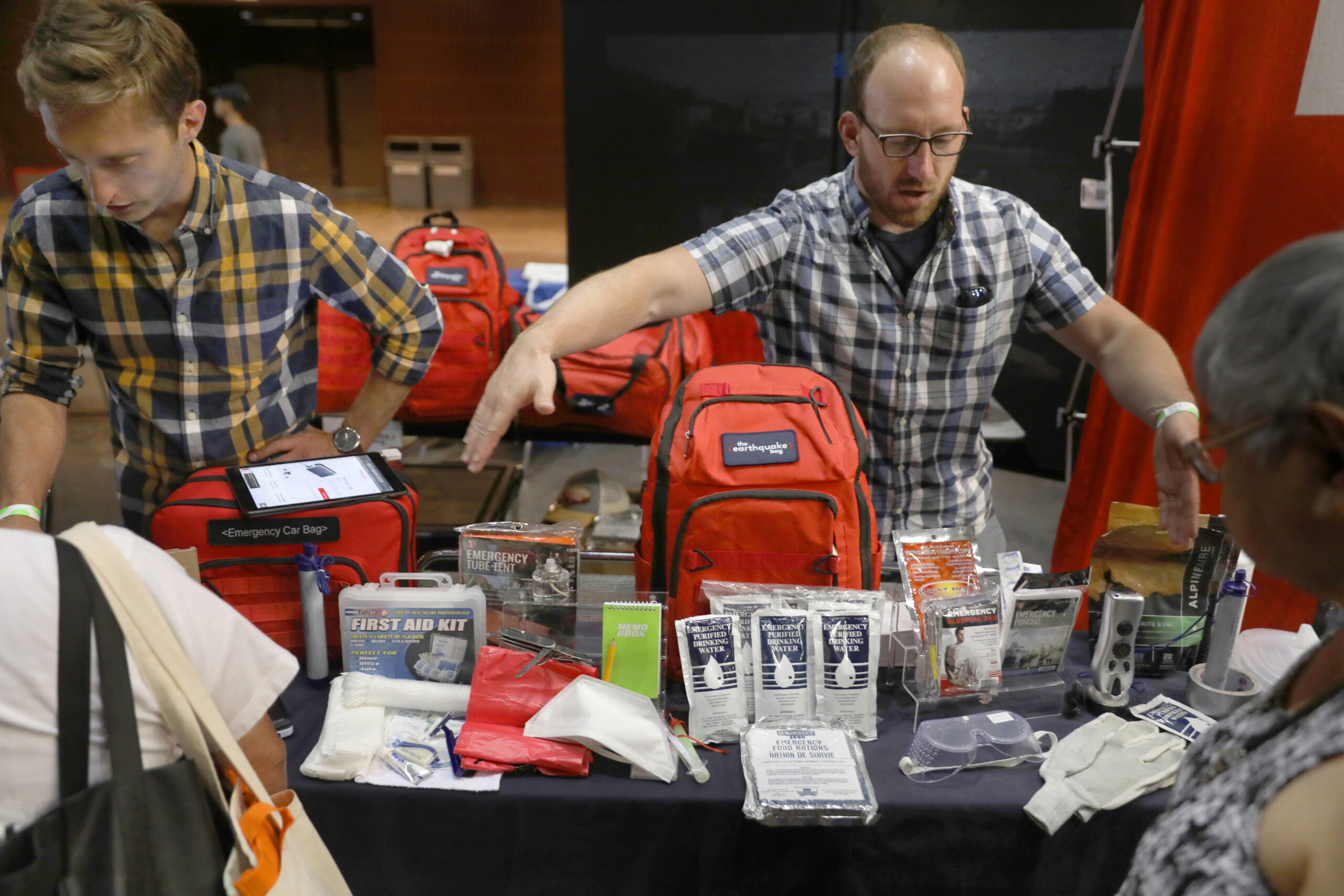The scenes of devastation coming out of Turkey, which was hit by a 7.8 magnitude earthquake Monday, are terrifying. And the death count continues to climb. At latest tally, as many as 2,300 victims have been found among the rubble.
Antep / Gaziantep
— Aleph א (@no_itsmyturn) February 6, 2023
Moment of the earthquake caught on CCTV#Deprem #Turkey 🇹🇷 pic.twitter.com/gg8AoTk4aS
The tragedy is yet another reminder for Bay Area residents—who live along seven fault zones—to prepare themselves for the inevitable event of a large temblor. Experts in emergency preparedness advise those caught inside when a quake strikes to stop, drop and hold (it is not recommended that you attempt to run outside while the earth is still shaking).
There’s plenty you can do to make sure you and your loved ones are ready for the “big one” before it happens. Here are five essentials for earthquake preparedness:
1. Make Your Go Bag
Go bags come in all shapes and sizes. The most important thing is having one—with at least 72 hours of essentials. That means: water, food, contacts written on paper, a local map, clothing, medicine and hygiene supplies. You should also include a flashlight with batteries, a lighter and matches, and duct tape. Don’t forget about your pets and your kids! Be sure you have three days’ worth of food and medicine (and toys) for them, as well. You should keep your main go bag in your home, easily accessible from where you sleep and a second, smaller go bag in your car or workplace. Access a full list of suggested items to include here.
2. Sign Up for AlertSF
AlertSF sends out notifications by text, email and phone in the event of an emergency. Geared specifically for San Francisco residents and visitors, AlertSF will notify you in the event of earthquakes, tsunamis and flooding—as well as other emergencies involving vehicular and pedestrian traffic. You can sign up for the free service by texting your zip code to 888-777 or visiting alertsf.org. You can sign up for multiple zip codes according to where you live, work, go to school, etc.
3. Create a Family Disaster Plan
Planning—and practicing—before a disaster strikes is just as important as assembling an emergency kit. Make sure everyone in your household knows where the emergency kit is kept, has flashlights and shoes by their bed and knows of at least two exit routes from your home. Be prepared to shut off utilities in your home or building, and get familiar with where gas and water turn-offs are located (keep a wrench near the gas line for easy access). Ensure that your family and friends have a reunification spot should cell service and transit go down. Practice a potential evacuation plan together from your home and office. If traveling, make sure you know the evacuation routes and preparedness plan of the hotel or home where you are staying.
4. Check Your Sleeping Spot
Most earthquake injuries happen from falling objects, and you likely spend more time sleeping in your bed than in any other spot in your home. Make sure you don’t have any framed glass above where you sleep, and also consider bookcases or other top heavy objects that could fall to ensure you won’t have anything landing on you. Keep a pair of sneakers by your bed in case you need to make an emergency exit through broken glass.
5. Talk to Your Workplace
The other place you spend the most time? Work. Make sure your employers have a disaster plan in place and a disaster readiness kit that covers the needs of all employees. Learn what kind of building you work in and the various hazards that might be associated with it to make sure it has been evaluated and certified for earthquake safety. Think about earthquake safety when traveling, as well, to ensure you have a plan in place.
Be Extra Prepared
Ready to go even deeper? Sign up for a training with NERT, the Neighborhood Emergency Response Team, and become a volunteer equipped with the skills to help out with your community in the event of a disaster.
